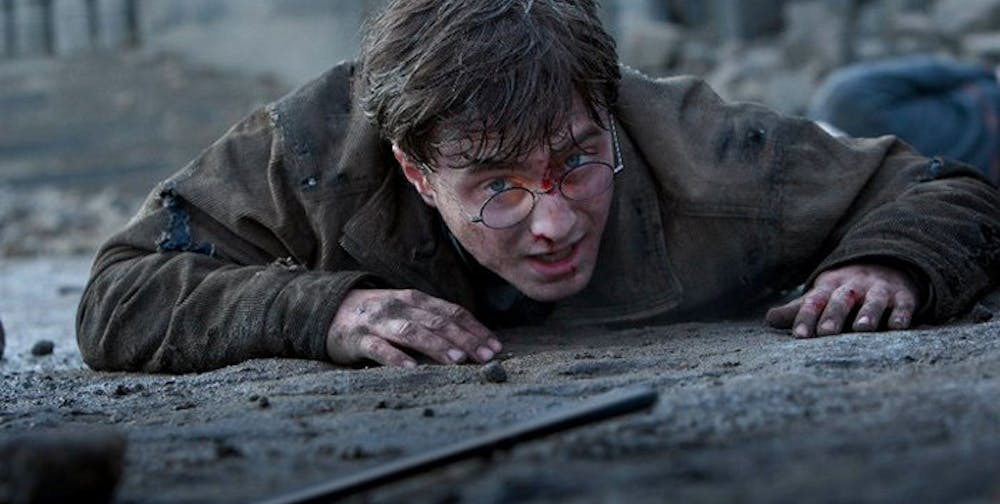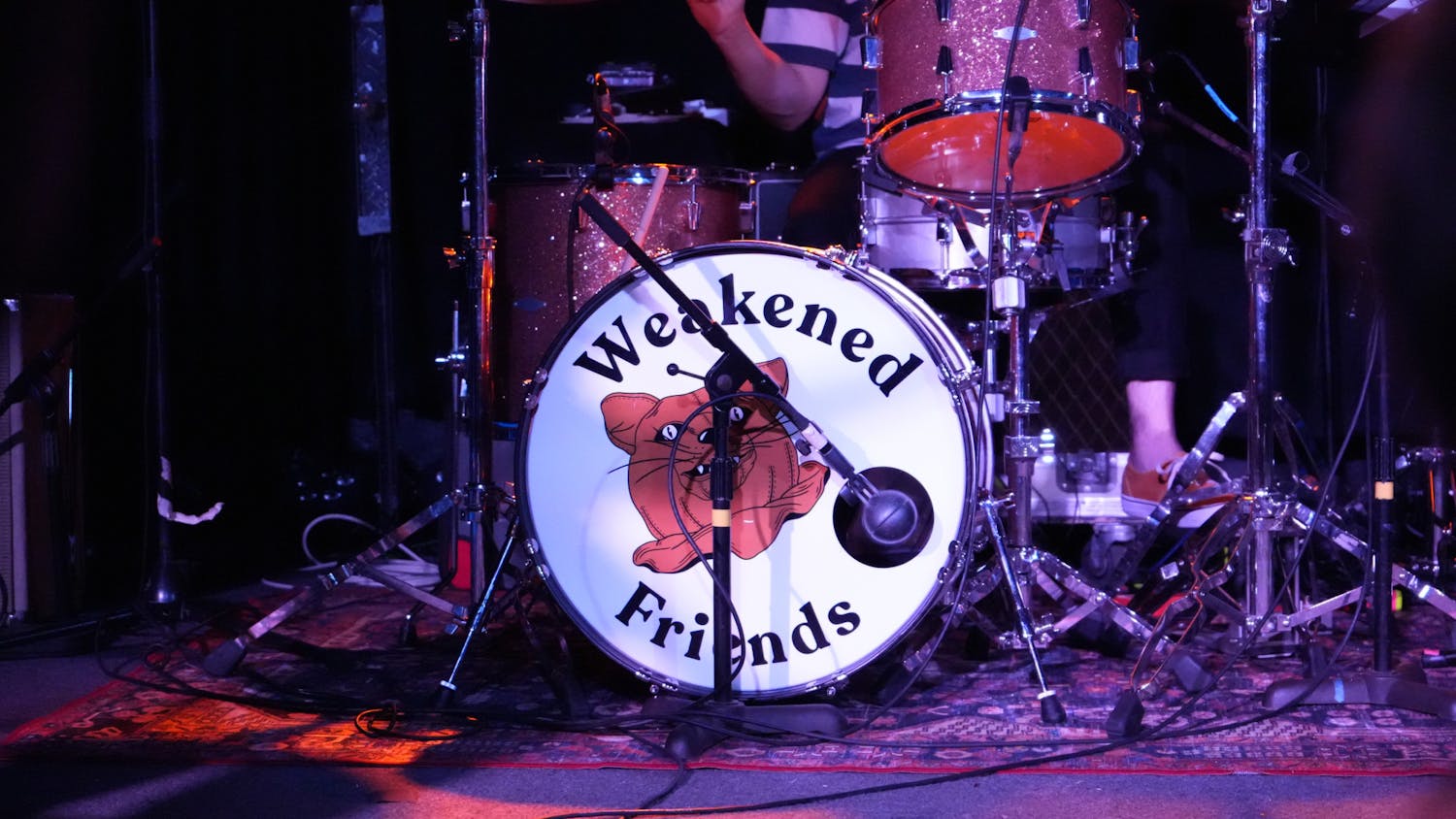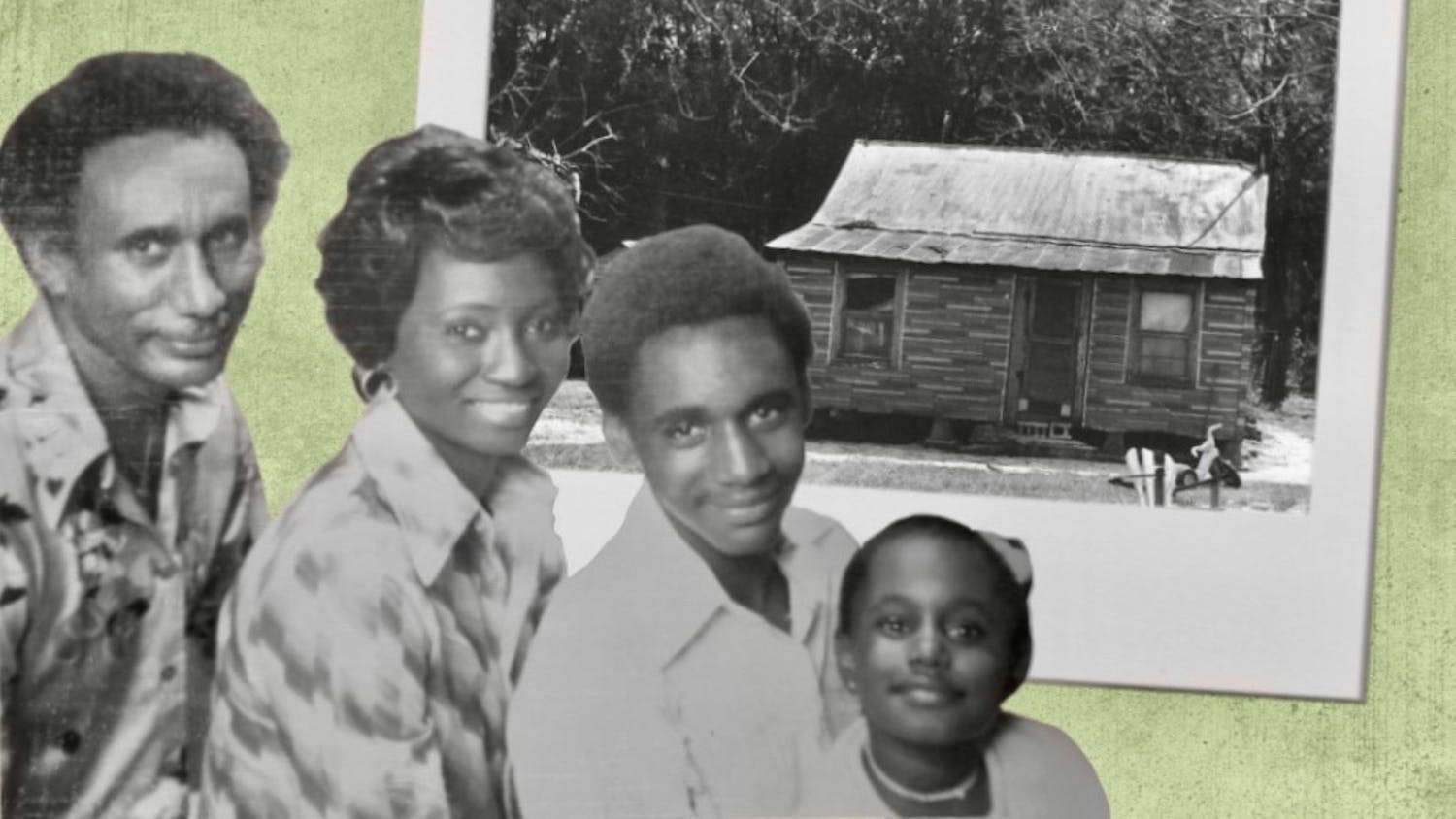Four thousand pages defined a generation.
Young adults delved into the story of The Boy Who Lived for almost nine years. They discovered an enchanting school, pure evil and what it means to be brave. They learned about true bonds of friendship, sacrifice, betrayal, leadership and love.
More than any other literature, the "Harry Potter" series helped define the lives of the current generation of college undergraduates, who grew up with Harry, Ron Weasley and Hermione Granger. Perhaps no other literature was as wholly accepted by a single demographic the way J.K. Rowling's life works were accepted by this generation.
In 2001, the story of Harry Potter came to life in theaters. Audiences followed Harry's journey through the Wizarding world for 10 years. The movie franchise became legendary, earning $6.3 billion in the box office.
When the eighth film, "Harry Potter and the Deathly Hallows: Part 2,"premieres at midnight, it will mark the end of the series.
Rowling began narrating the story of Harry Potter, a seemingly normal boy who discovers he's a wizard, in 1998. Within each of the seven books, Rowling develops characters who experience the hardships of growing up: loss, love, finding courage.
Hannah Herrero, a second-year geography student at UF, said the series was the highlight of her childhood. She remembers receiving "Harry Potter and the Sorcerer's Stone" as a Christmas present in kindergarten. The book nudged her to read.
"Once I started reading them, I was hooked," Herrero said. "I don't know what Rowling's secret ingredient is."
Herrero said going to Hogwarts with Harry and his friends is a way to completely "escape your reality." The books and movies appeal to all ages - from the generation who clutched these books throughout their teenage years to their parents, who have been just as enveloped in the series.
Sonya Cronin, who teaches religion and 20th-century fantasy literature at Florida State University, said when the class weaves into Rowling's works, her students give resounding applause.
"People are invested in it," she said. "It's intimately important for a lot of people."
Whether it's the date Harry's parents died or his family's lineage, Cronin said readers know more about Harry Potter than actual history.
Fantasy literature becomes so crucial, Cronin said, because people lead hard lives; they need an aspect of escape or consolation. Some people escape by watching sports. Others play music. Others write poems. Others read about Aurors and Death Eaters.
"It takes you into another realm - another world - where all dreamy possibilities can happen," she said. "We know what it means to take the Hogwarts Express."
The "Harry Potter" books and films, Cronin said, have given this generation a common language. She recalled a speech given to the University of Chicago in the 1970s. The speaker said that generation didn't have a common text; there wasn't a book everyone could relate to.
"‘Harry Potter' changed that," Cronin said. "‘Harry Potter' has given this generation something meaningful."
First-year nursing student Olivia de Jong waited to cross the U.S.-Canadian border during a summer trip to Canada in 2001 to pick up an English copy of "The Sorcerer's Stone."
"That was something I always looked forward to," she said. "It's weird not having that book to read."
The magical aspects captivated de Jong; every spell, Patronus and curse. The themes of friendship and camaraderie, however, captivated her the most.
"I realized that instead of having a lot of friends, I wanted a few that you're really, really close with," she said.
The series, de Jong said, became her teenage foundation. She read about Hermione Granger - the academic overachiever - picking up books for recreation. De Jong wanted to be studious after seeing Hermione check out hefty books for "a bit of light reading." It helped her keep a straight-A GPA in middle and high school.
There was emptiness after the seventh and final "Harry Potter" book was published. De Jong, like others, grew up reading and waiting for new books almost every summer.
"I had post-Potter syndrome," she said. "And at the end of the eighth movie, I'm definitely crying."






